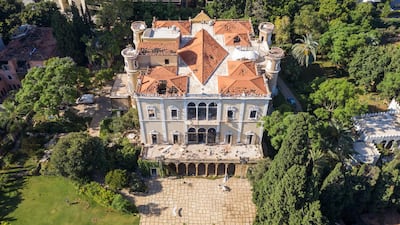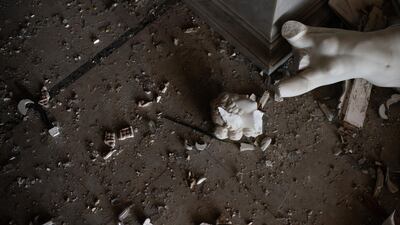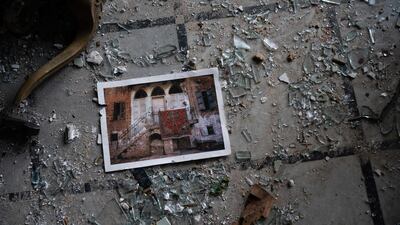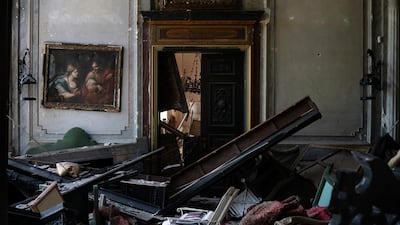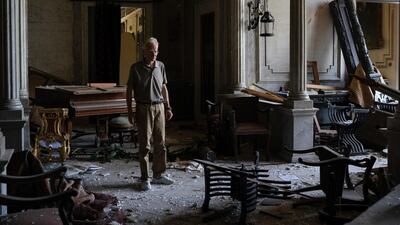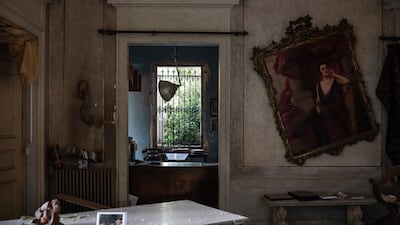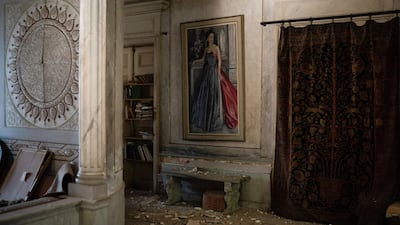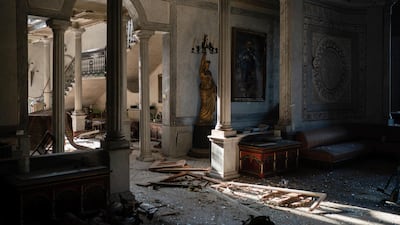Last week’s Beirut explosion blasted open the 157-year-old Bustros Palace that houses the Foreign Ministry, it also damaged the 19th-century Sursock Palace, only recently reopened after years of renovation. In addition to these icons of a Beirut’s dwindling heritage, it also ripped through some of the city’s most vibrant and historic neighbourhoods.
Now, urban activists and experts worry that much of Beirut’s already disappearing historical architecture may now be lost to a wave of demolitions that could bring down buildings too damaged or too costly to repair.
On August 4, 2,750 tonnes of ammonium nitrate combusted in a fire at Beirut Port, leading to the death of 157 people and injury of over 5,000.
Beirut Governor Marwan Abboud initially estimated that at least 6,200 buildings have been damaged and 300,000 left homeless. But a preliminary damage assessment by the Order of Engineers and Architects released on August 8, placed the number of damaged buildings much higher at 200,000.
Naji Esther, the founder of Save Beirut Heritage – an NGO that works to conserve Beirut’s traditional architecture – said he was devastated to find buildings he fought to protect now ravaged.
“Now every single building that I’ve worked for and managed to save and had lawsuits against [me] while fighting for it, is either half gone or mostly gone or quarter gone,” Mr Esther lamented.












The most heavily affected areas, including Ashrafieh and Karantina, also contain some of the densest clusters of heritage buildings, some of which date back to the late 19th century like the Bustros and Sursock palaces.
“This is an area of the city that people visit when they come to Beirut. It’s not just that there are a few heritage buildings,” explains Mona Fawaz, a professor of Urban Studies and Planning at the American University of Beirut. “It’s that it has a community of creatives. It has all these bars and pubs, workshops and studios, but also all these elderly people who know the history of the city who make the old buildings really alive.”
For decades activists have campaigned to preserve the city’s historic structures even as abandoned buildings crumble or are cleared for new high-rise buildings. Even the buildings legally protected by the Culture Ministry are often left to rot or fall down.
Activists largely blame the destruction of salvageable buildings on weak enforcement of laws, politicians with vested interests and real estate companies looking to build gleaming high-end developments
The exact number of heritage structures is not publicly known, but a 1997 study by the Director General of Urban Planning catalogued 572 heritage buildings in Beirut.
Prior to the explosion 150 may have already come down and the preliminary order of engineers’ report suggests that at least 100 remaining heritage buildings were likely in areas severely affected by the blast.
But authorities insist they will not allow the loss of Beirut’s old buildings. The Directorate General of Antiquities says it is inspecting the damage to listed heritage buildings as part of the Higher Relief Council’s post-blast citywide structural assessment that will guide reconstruction efforts.
The directorate's director general, Sarkis El Khoury, told The National that authorities will insist damaged heritage buildings are repaired or rebuilt.
According to Mr El Khoury, the directorate will ask Cabinet for a decree mandating that heritage buildings be repaired to their original form. What happens now that government resigned on Monday night is unclear.
Mr El Khoury acknowledged that some damaged buildings may need partial deconstruction to be properly rebuilt but said there would be ministerial oversight of such work.
“We all agreed that no building should be destroyed before the culture minister gives his authorisation. So even if it is a modern building, we should give them the authorisation,” he said.
Mr El Khoury also said the directorate would push the government to designate the towering – and now twisted – grain silos at the port as a national monument with a garden and access route.
But activists point to past experience or reconstruction after the 1975-1990 civil war and the 2006 Hezbollah-Israel war as evidence that little will be done to stop the demolition of heritage sites.
Both times, once vibrant neighbourhoods were reshaped into gentrified ghost towns with the much of the city’s architectural history destroyed in the process.
And the blast is not Lebanon’s only crisis – the country is bankrupt, facing the worst economic crisis in decades.
Mona Harb, a professor of Urban Studies and Politics at AUB, points to the economic crisis as another issue for reconstruction.
“We were already scrapping by for shreds to survive a very serious economic, monetary and banking crisis – as we speak, people cannot access their money in the banks,” she said, adding that now they have to try to repair damaged homes, fix broken cars and replace lost belongings.
“Historical building seems like the least of our concerns. If I were in a historical building and I had recently restored it in some way and I have to now pay more money to do it [again], I would seriously reconsider that choice and maybe pack and leave,” she said.
With so much of Beirut’s future up in the air after the explosion, activists worry the battle for Beirut’s heritage will be long and get lost in a reconstruction rush.
While the demolition of heritage buildings has slowed in recent years as the real estate market reeled from the effect of the recession, a building boom sparked by reconstruction money could still see a fresh wave of destruction.
